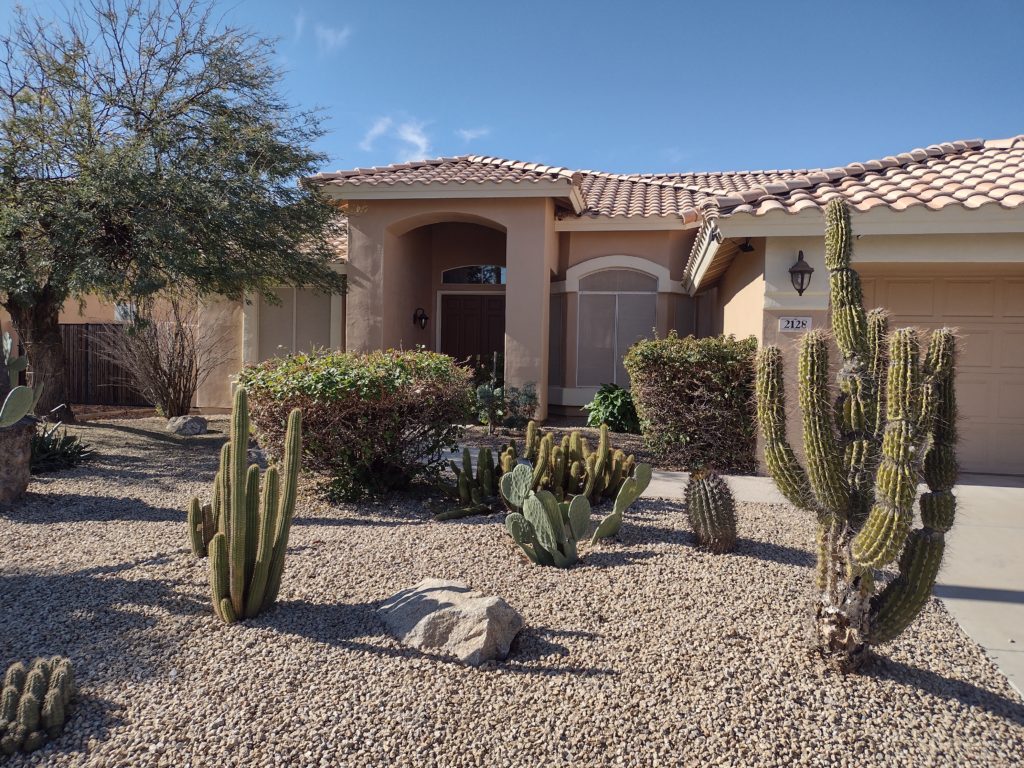HOAs, CC&Rs, and Ordinances: What You Need to Know Before Purchasing a Short Term Rental
If you’re looking for a vacation rental in a suburb or live in one yourself, chances are you’ve encountered an HOA, or Homeowner’s Association. The rise in popularity of short-term rentals are becoming a polarizing topic in planned communities. Many HOAs are moving to restrict or ban them outright. On the flip side, HOAs often have a reputation for being nitpicky, nosy, and a general annoyance.
So how will this affect your short term rental? This week, we’ll go over the legal authority of HOAs and their impact on short-term rentals.
Please note that today’s content applies specifically to the state of Arizona. Other states will have other laws that may differ from ours. Because the Phoenix Metro area has so many municipalities, we’re going to focus on federal and state laws.
What is an HOA?
An HOA, or Homeowner’s Association, is a managing board consisting of several of the homeowners in a planned community. It operates under a set of bylaws that are voted on by community members, and these bylaws spell out details such as voting rights, frequency of meetings, how the budget is managed, and the specific duties of the board and its officers. An HOA sets the tone of the community and makes sure the common areas and roads are properly maintained. The HOA is also responsible for enforcing community rules, regulations, and CC&Rs.
What is a CC&R?
‘CC&R’ stands for Covenants, Conditions, and Restrictions. It’s a legally binding document that the buyer must read and sign when purchasing a property in an HOA community. A CC&R is a contract between the owner and the HOA. and clearly states the rules and regulations members must adhere to in order to live in the community. It is usually recorded in the county land records whenever a home is purchased.
As an owner, state law does allow you to designate a management representative or company to work with the HOA on your behalf if you don’t live nearby or just simply wish to have your property professionally managed.
What Does an HOA Do?
As mentioned previously, an HOA maintains roadways and common areas, including pools, grills, playgrounds, and clubhouses. In order to finance repairs and maintenance, monthly dues(sometimes known as assessments) are collected from members. Depending on the area, this can range from anywhere from $50 to $80 a month to several hundred dollars in high-income neighborhoods. A designated officer usually keeps track of finances and makes sure the budget is being properly maintained.
An HOA usually holds regular meetings, often monthly, to discuss and solve any ongoing issues within the community and to address member questions and concerns. Sometimes special meetings are held if, for example, one or more members is contesting a rule violation, or a member wants to make significant architectural changes to their property.
HOAs often have rules and regulations regarding the exterior of the property to maintain community cleanliness and uniformity. These are usually limited to the front yards and the physical exterior of the house. This encompasses everything from the types of landscaping members can have in their front yard to what color they can paint their house. Some HOAs are more strict than others, it just depends on the community.
An HOA may also forbid renting of any kind in the community, including short term or vacation rentals. They can also limit long-term rentals, or set a minimum time frame for a lease. 30-day lease minimums are common in planned communities, especially condominiums.
What are HOAs allowed to do?
HOAs can enforce bylaws, restrictions, amendments, and CC&Rs so long as they fall within federal, state, and local laws and ordinances. They can issue citations and fines for violations, such as trash in a front yard, a dead lawn or plants, or unapproved signage or décor. If there are outstanding delinquent violations and unpaid fines they can issue liens or foreclose on the property.

HOAs can restrict overnight and street parking in the community if the HOA maintains its own roadways(but they can’t restrict all of it. We’ll touch on that in the next section).
If a member wants to do a major renovation on their property, such as a repaint, landscaping, or any serious cosmetic overhaul, an HOA may request a special meeting to review the plans and determine if they fall within regulations. They can deny approval to the homeowner if the plans contain violations. If approved, the HOA can request a security deposit as a means of ensuring the construction gets finished in a timely manner. Per AZ state law, they can inspect the home twice during construction to make sure renovations remain within the determined guidelines. Keep this in mind if you’re looking to renovate your property for short term(or even long term) rental use.
If you’re renting out your property, an HOA may request only the following information regarding your guests or tennants:
- Name and contact info of all adults staying on property(18 and older only, they cannot request information on minors)
- Duration of lease or stay, including start and end date
- Vehicle and plate information of guests or tenants
What is an HOA NOT allowed to do?
It may feel like HOAs have complete authority on everything in a neighborhood, but federal and state laws have been updated over the years to limit their authority in planned communities. Federal laws, the Arizona Planned Communities Act(AZPCA) and the Arizona Condominium Act (AZCA) have legislation in place that prohibits HOAs from doing the following:
- Discrimination. The Fair Housing Act prohibits HOAs from discrimination against owners, renters, and buyers in their community based on sex, ethnicity, age, national origin, familial status, or disability. An HOA is not allowed to practice selective enforcement. They can’t cite one property for a specific violation while allowing one or more properties to get away with it. Both the AZPCA and AZCA prohibit this.
- Flags. The Freedom to Display the American Flag act of 2005, as well as the AZPCA and AZCA, state clearly that HOAs may not prohibit the display of the American flag. The AZPCA and AZCA ban HOAs from prohibiting the display of five flags: the national, state, POW/MIA, Arizona Indian Nations, and the Gadsen Flag. They can, however, enact a few restrictions, such as size or placement.
- Political Activity. State law forbids an HOA to prohibit political activity, such as door-to-door activity and signage display. They can only set reasonable limits on when it can be done, as well as set some limits on signage. Gated communities, or communities that restrict vehicular and pedestrian access, are exempt from these rules.
- Commercial signage. Neither a condominium nor planned community HOA may prohibit commercial signage for open houses, or prohibit open houses themselves, but they can limit the hours of an open house to 8AM to 6PM. They also can’t forbid any commercial real estate signage(i.e. ‘For Rent’ or ‘For Sale’ signs).

- Solar installations. An HOA cannot prevent a homeowner from installing solar panels or other solar devices. It also cannot pass any regulations that impair or restrict its performance.
- Parking. HOAs cannot prohibit or restrict street or driveway parking of vehicles used for certain types of public service(law enforcement, utility companies, etc.). They also have no authority of streets and roads owned and maintained by any governmental entity. They cannot dictate who can park there and for how long.
- Tenant and guest privacy. An HOA is not allowed to request or demand personal information on any guest or tenant renting your home. This includes the rental application, financial information, credit report, etc. They may only request the information outlined previously.
What about local ordinances?
In 2019, Arizona passed legislature stating that a city or municipality may not directly regulate short term rentals except under the following circumstances:
- The owner of the property must provide contact info if requested in order to address complaints regarding the property.
- A city or municipality may intervene when public health and safety is at risk.
- Core ordinance enforcement may still be practiced(noise ordinances, occupancy rates, etc.).
- A short-term rental can’t be used as a sober living home.
- Short term rentals may not sell illegal and controlled substances, nor may it sell adult content.
Why do HOAs dislike short term and vacation rentals?
A growing number of HOAs are moving to either restrict or ban short-term and vacation rentals in their communities:
- Commercial vs. residential use. There’s a legal zoning gray area regarding short-term rentals and hasn’t been clarified or resolved in several municipalities. Many HOAs view vacation rentals as commercial use, which puts them in violation of the residential zoning of the community.
- Community safety and unity. A revolving door of guests is a valid, growing cause of concern for homeowners in a planned community. While you may be doing a thorough vetting of who stays on your property, your neighbors don’t know them. If your property is in a gated community, knowing a stranger(or likely several of them) now has access to the gate code may make them uneasy. They may feel that the safety of the neighborhood may be compromised as a result. Many homeowners also feel that the constant presence of strangers in the community threatens the overall peacefulness and unity of the community. This is especially true if the housing tract contains more than one vacation rental.
- Problematic guests. This is a high priority for residents and HOAs alike. Even the most careful vetting can’t weed out all of the guests who may be disrespectful to the property. Many HOAs are seeing an increasing amount of issues with short term rental guests. These range from loud parties to littering to even causing damage to common areas. Vacationers are often looking to let loose, and they may eschew the rules and regulations of the HOA. Several bad guests in a row it can disrupt the safety and morale of the entire community.
What should I do if my short term rental is in an HOA-governed community?
Read your HOA rules and regulations thoroughly to make sure your property is compliant. If need be, ask your HOA for clarification on any vague wording. Make sure you get a response in writing.
Make sure your guests are aware of all applicable policies, and set your own rental policies accordingly. Be clear about what behavior isn’t tolerated. Make sure they acknowledge what the consequences are in case of any violations, including extra fees, fines, etc. State these policies in your listing as well.
Have a summary or copy of the rules posted in the property where it is easily seen. The entryway of the home and by the garage door are good options. If your property has a binder, put a copy in there as well.
Inform both the HOA and nearby neighbors of your intentions for the property. While some might not like it, others may be willing to give you a helping hand or keep an eye on things. Having an extra set of eyes on the property when you aren’t there helps you if you encounter a bad guest and need to collect on any damages or extra cleaning fees. They can also double-check to make sure there are no undeclared guests or vehicles on the property.
Keep your property pristine. Neighbors can get petty and angry if they don’t like living next to a rental. Some will look for anything they can to report to the HOA in an effort to bring your investment to a screeching halt. Don’t give them the opportunity!
DO NOT RENT OUT YOUR PROPERTY IF IT IS A VIOLATION OF HOA BYLAWS. The HOA can place liens or foreclose on the property. If your heart is set on owning a vacation rental, sell the property and buy one in a neighborhood that allows rentals. The best course of action is to buy one in an area with no HOA at all.
Help! My HOA used to allow short-term rentals and now it no longer does!
Fear not! You may be saved by a grandfather clause.
In the state of Arizona, an HOA cannot enforce a rental restriction against an owner if the owner purchased the property before the restriction went into effect. This means that if an amendment banning short-term leases is passed after you purchased the property, they can’t cite you for violating it.
There is, however, one exception to this: If the board voted unanimously to pass the amendment, it applies to all properties in the community, regardless of when they were purchased by the owners. Contact your HOA if they try to enforce a new restriction on you and get the voting record. An HOA is not allowed to withhold that information from you.
Keep this information on hand to reference when purchasing your vacation rental, and you’ll avoid potential stress in the future!
If you love the property but dislike the idea of dealing with an HOA or a CC&R let us do the heavy lifting for you! Short Term Rental Manager has 15 years of property management experience. Our in-house team of real estate agents, property managers, and maintenance and cleaning crew can assist you from start to finish. From the purchase of the property to guest bookings to maintenance, we work hard to maximize your return on investment! Visit our website for more information!

